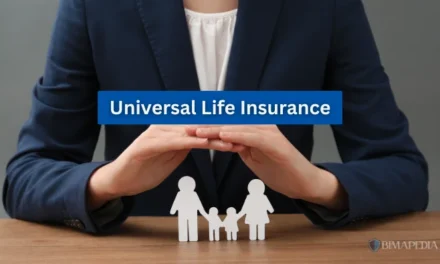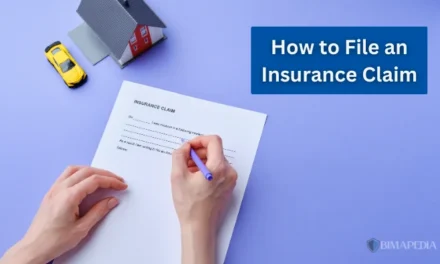Surprising Things Not Covered by Your Insurance Policy
Insurance policies often have exclusions or situations they don’t cover, which can vary depending on the type of insurance and the specific policy. Below is an overview of common exclusions in different types of insurance policies:
Health Insurance Exclusions
Health insurance policies typically cover a range of medical services but may exclude:
- Cosmetic Surgery: Procedures like facelifts, breast implants, and other non-medically necessary surgeries.
- Alternative Treatments: Certain treatments like acupuncture, chiropractic care, or herbal medicine may not be covered unless explicitly stated.
- Pre-existing Conditions: Health conditions that existed before you took out the policy might not be covered, or coverage could be limited.
- Experimental Treatments: Unproven or experimental treatments, medications, or procedures are generally excluded.
- Prescription Medications: Some medications may not be covered, particularly brand-name drugs when generic alternatives are available.
- Motor Vehicle Accidents (Under Health Insurance): Health insurance often doesn’t cover injuries sustained from a motor vehicle accident if the injury is covered under an auto insurance policy. Depending on the situation, your car insurance may pay first, and health insurance may only cover what’s left.
- Dental and Vision Care: Routine dental and vision services are typically excluded from regular health insurance coverage. You may need separate policies for dental and vision care or an add-on plan that covers things like exams, glasses, and dental cleanings. Some basic health plans may include limited vision or dental coverage, but it’s rare.
- Self-inflicted Injuries: Injuries or damages caused by self-harm or suicide attempts are commonly excluded from health and life insurance policies. However, policies may cover injuries caused by accidents or other unforeseen circumstances.
- Travel-related Incidents: Regular health insurance may not provide full coverage for accidents, injuries, or illnesses that occur while traveling abroad. Some policies offer international coverage, but it’s often limited and may not cover medical evacuation or repatriation.
- High-risk or Exotic Activities: Insurance policies often excluded coverage for injuries sustained during high-risk or extreme activities like skydiving, bungee jumping, or motor racing. Separate adventure sports or travel insurance might be required for coverage in such cases.
Auto Insurance Exclusions
Auto insurance policies often exclude:
- Wear and Tear: Insurance policies generally don’t cover damage caused by normal wear and tear over time. This includes things like worn-out carpets, old appliances breaking down, or rust on metal surfaces. Maintenance and repairs due to age or lack of upkeep are your responsibility.
- Negligence: If your negligence causes damage to your property or injuries to others, your insurance may not cover the cost. For example, if you fail to maintain your home or vehicle properly and it leads to an accident, the insurer may refuse to pay out on the claim.
- Intentional acts: Insurance typically doesn’t cover damages or injuries resulting from intentional actions. For example, if you deliberately cause damage to your property or hurt someone, your insurance policy will not protect you.
- Car Accidents with Uninsured/Underinsured Drivers: Standard auto insurance may not fully cover you if you’re involved in an accident with an uninsured or underinsured driver. To protect yourself from these situations, you’ll need to add uninsured/underinsured motorist coverage to your policy.
- Natural Disasters: Certain natural disasters, including landslides, mudslides, and volcanic eruptions, are often excluded from general home and auto policies. Depending on where you live, you may need specialized insurance to protect against these risks.
Homeowners’ or Renters’ Insurance Exclusions
These exclusions often apply to standard homeowners’ or renters’ insurance policies:
- Flood Damage: Flooding is not covered under most standard home insurance policies. This includes damage caused by heavy rain, hurricanes, or rising water levels. To protect your home against flood damage, you often need to purchase separate flood insurance.
- Earthquakes: Earthquake damage is another common exclusion in standard home insurance policies. If you live in an area prone to earthquakes, you may need to purchase a separate earthquake insurance policy to cover the damage caused by tremors, including foundation damage or broken pipes.
- Pest Infestations: Damage caused by pests such as termites, rodents, or insects is usually not covered under standard insurance policies. If pests damage your property or possessions, it’s typically up to you to pay for the repairs.
- High-value Items: Standard homeowners’ or renters’ insurance policies may not cover high-value items like fine art, jewelry, or rare collections. If you own high-value property, you may need to purchase additional coverage to ensure that these items are properly insured.
- Pet Damage: Homeowners’ insurance typically does not cover damages caused by your pets. If your dog or cat damages another person’s property or causes injuries to someone else, you might need separate liability coverage or renters’ insurance with pet liability.
- Mold and Mildew: Many insurance policies do not cover damage caused by mold or mildew unless it results from a covered peril, like a burst pipe. Mold removal often falls under exclusions, and it may be necessary to have additional coverage for water or mold damage.
- Depreciation of Property: In some cases, insurance policies only cover the replacement cost or market value of an item, not the original price or depreciation. If something gets damaged or stolen, the insurance payout might be significantly lower than what you originally paid.
- Acts of War and Terrorism: Many insurance policies specifically exclude coverage for damages or injuries related to acts of war, terrorism, or civil unrest. Special coverage may be available for purchase in some cases, but it’s often excluded from standard policies.
- Identity Theft and Fraud: Regular homeowners’ and renters’ insurance does not cover the financial losses associated with identity theft or fraud. A separate identity theft or fraud. A separate identity theft protection policy or a rider may be necessary to cover this risk.
- Business Activities (Under Personal Insurance): If you’re running a business from home, personal property insurance may not cover business-related losses. You may need a commercial insurance policy for coverage, such as for equipment, liability, or business interruption.
- Natural Disasters and Environmental Hazards: While some homeowners’ insurance policies may cover damages caused by storms, fire, or flooding, others, particularly those in flood-prone areas, may not include flood insurance. Earthquakes and landslides are another area often excluded from standard coverage, and separate policies may be required for such events.
General Insurance Exclusions (Apply Across Multiple Policy Types)
- Personal Liability in Certain Situations: While many policies cover personal liability (injuries to others or damage to their property), some exclusions apply. For example, if you’re involved in illegal activities or negligent behavior, your liability insurance may not cover the resulting damages.
- Intentional Acts: Damages or losses from intentional acts, like committing a crime, are typically excluded from coverage. For example, if an insured person intentionally damages property, their insurance policy will not cover the loss.
- Bankruptcy and Business Failures: Personal or commercial insurance generally won’t cover losses related to the bankruptcy or financial failure of a business. Business interruption insurance may cover some losses but not all scenarios related to insolvency.
How to Avoid Surprises
- Compare Plans: If you are not happy with the exclusions of your current policy, it might be worthwhile to shop around for a new policy with better coverage.
- Read Your Policy Thoroughly: Review the exclusions in your insurance policy to understand what is not covered. Don’t hesitate to ask your provider about any unclear terms.
- Consider Supplemental Insurance: For some exclusions, like dental, vision, or long-term care, consider purchasing additional coverage.
- Add Riders or Endorsements: Some policies allow you to add extra coverage for specific needs (e.g., flood coverage, pet damage, or business-related issues).
By understanding your insurance policy’s exclusions, you can avoid unexpected costs and find additional coverage for the areas that matter most to you.







Recent Comments